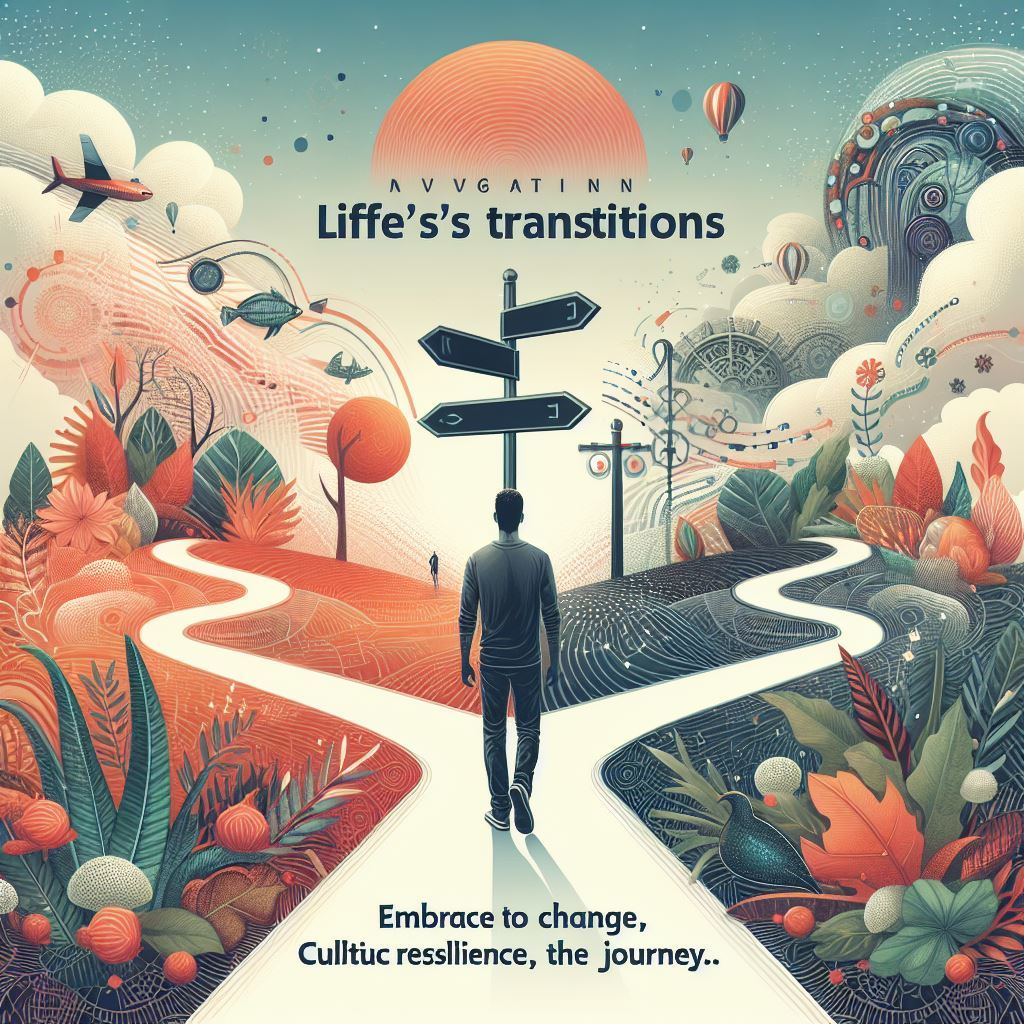Life is a journey marked by ebbs and flows, twists and turns, and moments of profound change. Whether by choice or circumstance, transitions are inevitable, ushering us into new chapters of our lives and presenting opportunities for growth and transformation. Yet, navigating these transitions can often be a daunting and tumultuous process, stirring up feelings of uncertainty, fear, and resistance. In this guide, I'll explore insightful strategies to help you embrace change, navigate life transitions successfully, and emerge stronger and more resilient on the other side.
1. Cultivate Self-Awareness: The first step in navigating life transitions is to cultivate self-awareness. Take time to reflect on your values, aspirations, and priorities, and how they may evolve in the face of change. Explore your fears and concerns openly and honestly, acknowledging the emotions that arise without judgment. By gaining clarity on your inner landscape, you empower yourself to navigate transitions with greater insight and authenticity.
2. Embrace the Unknown: Change often brings with it an element of uncertainty, challenging us to step into the unknown with courage and resilience. Embrace the uncertainty as a natural part of the human experience, rather than resisting or fearing it. Trust in your ability to adapt and thrive amidst the unpredictability of life, viewing change as an opportunity for growth and discovery.
3. Practice Adaptability: Adaptability is the key to navigating life transitions successfully. Cultivate a flexible mindset that is open to new possibilities and willing to adjust course as needed. Embrace change as a catalyst for adaptation, innovation, and personal evolution. Instead of clinging to rigid expectations or outcomes, flow with the currents of change, embracing the journey as it unfolds.
4. Seek Support and Connection: Transitions can feel isolating, but you don't have to navigate them alone. Reach out to friends, family, or trusted mentors for support and guidance during times of change. Share your experiences openly and vulnerably, allowing others to offer perspective, encouragement, and empathy. Cultivate a sense of connection and belonging as you navigate transitions together with your support network by your side.
5. Practice Self-Compassion: Change can stir up a whirlwind of emotions, including self-doubt, criticism, and judgment. Practice self-compassion as a nurturing balm for the soul during times of transition. Be gentle and kind with yourself, acknowledging the challenges you face with empathy and understanding. Treat yourself with the same kindness and compassion you would offer to a dear friend, recognizing that you are doing the best you can in navigating life's twists and turns.
6. Focus on What You Can Control: While change may bring a sense of upheaval and chaos, focus on what you can control amidst the uncertainty. Identify areas where you can take proactive steps to shape your experience and influence the outcome of the transition. Whether it's setting boundaries, establishing new routines, or seeking out opportunities for growth, empower yourself by taking intentional action in areas within your sphere of influence.
7. Embrace Resilience: Resilience is the art of bouncing back from adversity with strength and grace. Cultivate resilience by reframing challenges as opportunities for growth and learning. Draw upon your inner reserves of courage, perseverance, and resourcefulness to navigate life's transitions with resilience and determination. Trust in your ability to weather the storms of change and emerge stronger on the other side.
8. Celebrate Milestones and Progress: Amidst the whirlwind of change, take time to celebrate milestones and acknowledge your progress along the way. Celebrate even the smallest victories and accomplishments, recognizing the courage and resilience it takes to navigate life's transitions with grace and integrity. Cultivate a spirit of gratitude for the lessons learned and the growth experienced, honoring the journey as much as the destination.
9. Stay Present and Mindful: In the midst of change, it's easy to get caught up in worries about the future or regrets about the past. Practice mindfulness and presence as anchors amidst the uncertainty. Ground yourself in the present moment, savoring the beauty and richness of life as it unfolds before you. Cultivate awareness and acceptance of the present moment, embracing each experience with an open heart and mind.
10. Trust in the Process: Above all, trust in the process of life and the inherent wisdom of the universe. Trust that each transition, however challenging or unexpected, is ultimately guiding you towards greater growth, fulfillment, and alignment with your true purpose. Surrender to the flow of life, trusting that you are exactly where you need to be at this moment in time.
In conclusion, navigating life transitions successfully requires a blend of self-awareness, adaptability, resilience, and trust in the inherent wisdom of the journey. By embracing change with an open heart and mind, seeking support and connection, and practicing self-compassion and mindfulness, you can navigate life's transitions with grace, courage, and resilience. Remember, change is not the enemy but the catalyst for growth and transformation, inviting you to embrace the journey with courage and curiosity.
